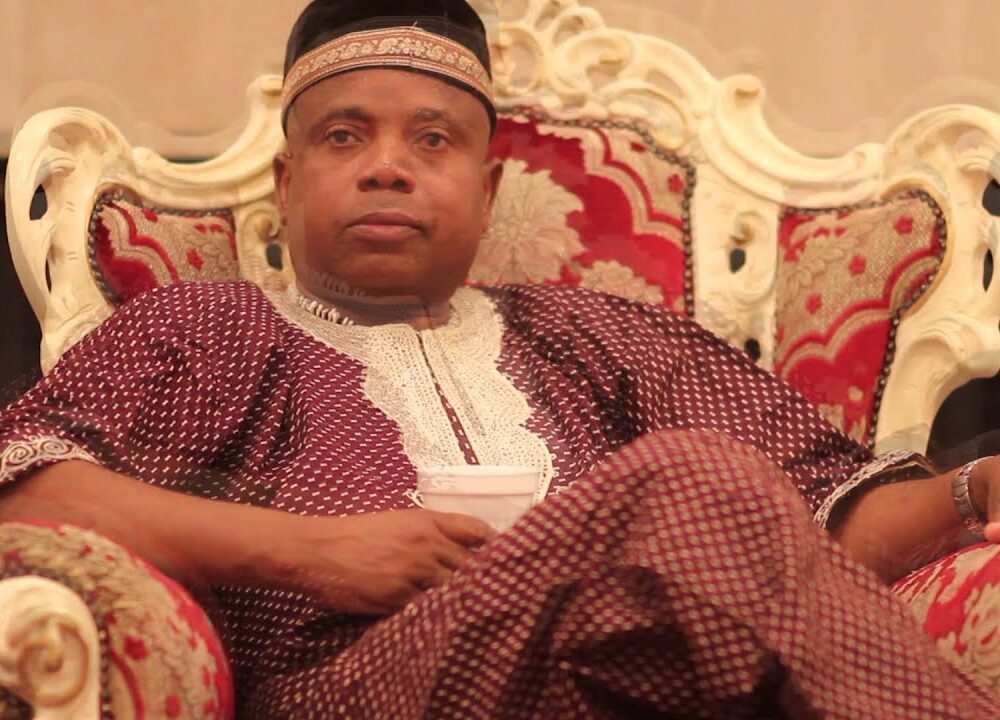The Context And Contradictions Of Nigeria’s Minimum Age Policy For University Admission
Let me today discuss an issue that is at once emotive as it is controversial: minimum age to enroll into a tertiary institution. My dissertation is therefore, understandably lengthy. I will try my best to explore them.
Education is for the well-being of every person regardless of age. It is a continuum and a necessity in this fast developing society of ours. Education is of two types. There is the formal education which is structured and regulated by the government, with the assistance of all the stake-holders in the education sector. The second, though not the focus of this writeup is the informal education. This form of education has no definite structure and operates at the whim and caprice of the proprietor. At the completion of the education, the attendees are given Certificates of Participation.
In the whirlwind of educational reforms across Nigeria, one policy has drawn more attention than others – the minimum age for university admission, recently mandated to be 18. This policy has triggered a nationwide debate, invoking questions about readiness, maturity, educational flexibility and perhaps more importantly, the future of Nigeria’s youth.
The broader implications of such a policy – socially, legally and educationally – compel us to dig deeper. How did we arrive here? Does age truly reflect emotional maturity? Does this policy help or hinder Nigeria’s educational aspirations? And, more crucially, how does it sit in a country where other societal norms push young Nigerians into adulthood earlier than this policy anticipates?
FEDERAL GOVERNMENT’S POSITION
The Federal government of Nigeria, through the Minister of Education, Professor Tahir Mamman, has argued that this policy is designed to ensure that students are emotionally and intellectually mature before entering university. According to Professor Mamman, “It is not just a matter of academic readiness; it’s about emotional and psychological maturity. We have seen cases where students who entered university too early struggled to cope with the demands of higher education.” This rationale has however been met with significant opposition from various stakeholders in the educational sector who view the policy as an unnecessary and regressive barrier to academic achievement.
Contradictions in Nigerian Society
The crux of the criticism lies in the paradoxical nature of the policy when juxtaposed with other societal practices in Nigeria. While the government insists that students under 18 are not mature enough to handle the rigors of university life, it simultaneously turns a blind eye to practices that thrust children into adult roles at much younger ages. This includes the widespread issue of child marriage, particularly in the northern parts of Nigeria, where girls as young as 12 or 13 are married off. According to UNICEF, Nigeria has one of the highest rates of child marriage in the world, with 43% of girls married before their 18th birthday.
Furthermore, the legal system in Nigeria also reflects these contradictions. Children as young as 13 have been incarcerated in adult prisons for various offences, raising serious concerns about the country’s juvenile justice system. This practice therefore starkly contrasts with the government’s stance that students must be 18 to be deemed mature enough for higher education. As noted by journalist Oseni Rufai, “They say pupils can’t go to university before 18, but they can get married at 12. Is this alliance with the other side of the country really benefiting us? Their way of reasoning is becoming increasingly frustrating.”
These contradictions expose the inconsistencies in Nigeria’s approach to child development and highlight the need for a more cohesive and comprehensive policy framework that aligns educational standards with the broader societal context.
The Legal and Educational Framework in Nigeria
Nigeria’s educational framework operates within the 6-3-3-4 system, which ideally sees students completing secondary education by the age of 17 or 18. However, various factors, including accelerated learning programs and early school enrollment, mean that many students complete secondary school before they turn 18. Under the new policy, these students would be forced to delay their progression to higher education, regardless of their academic readiness.
JAMB The Dictator
Admission into tertiary institutions in Nigeria is regulated by a body that appears to be an unhinged dictator. It is known as the Joint Admissions and Matriculation Board (JAMB). Pursuant to the provisions of the Joint Admissions and Matriculation Board Act, 1989 (JAMB ACT), JAMB as a monopoly of tertiary education, is a body corporate with perpetual succession and a common seal and may sue and be sued in its corporate name. JAMB is responsible for the general control of the conduct of matriculation examinations for admissions into all Universities, Polytechnics (by whatever name called) and Colleges of Education (by whatever name called) in Nigeria. Under Section 6 of the JAMB ACT, the Minister of Education has the power to give JAMB “directives of a general character or relating generally to particular matters with regard to the exercise by the Board of its functions under this Act and it shall be the duty of the Board to comply with such directives.”
The Nigerian Constitution Speaks
The Nigerian Constitution of 1999 (as amended), particularly the Concurrent Legislative List, grants both the National Assembly and State Assemblies the power to legislate on matters of education. Section 4 of the Constitution of the Federal Republic of Nigeria, 1999 (as amended) and Part II, items 27-30 of the Concurrent Legislative List, spelt out modalities for the establishment of formal education across all the sections of Nigeria. For ease of reference, Items 27-30 of the Concurrent Legislative List read thus:
“27. The National Assembly shall have power to make laws for the Federation or any part thereof with respect to university education, technological education or such professional education as may from time to time be designated by the National Assembly.
The Power conferred on the National Assembly under paragraph 27 of this item shall include power to establish an institution for the purposes of university, post-primary, technological or professional education.
Subject as herein provided, a House of Assembly shall have power to make laws for the state with respect to the establishment of an institution for purposes of university, technological or professional education.
Nothing in the foregoing paragraphs of this item shall be construed so as to limit the powers of a House of Assembly to make laws for the State with respect to technical, vocational, post-primary, primary or other forms of education, including the establishment of institutions for the pursuit of such education.”
However, the imposition of an age limit for university admission through a mere policy directive, rather than an enacted law, raises questions about the legitimacy of this approach. As highlighted by legal experts, the Constitution should be interpreted liberally and not restrictively, meaning that while the National Assembly may have the authority to prescribe a minimum age for university students, such a policy should be implemented through proper legislative processes, not through mere executive fiat.
Former Vice President Atiku Abubakar, a vocal critic of the policy, described it as a “disincentive to scholarship” and a step backward for Nigeria’s educational advancement. “This policy belongs in the stone ages,” Atiku remarked, emphasizing that such a rigid age limit stifles the academic potential of young Nigerians who are intellectually ready to pursue higher education. I agree with the Waziri.
The Societal Impact of the Minimum Age Policy
The societal implications of this policy are far-reaching. By imposing an arbitrary age limit on university admissions, the government risks creating a significant backlog in the education system. Students who complete secondary education before the age of 18 will be left in a state of limbo, unable to advance to higher education. This could lead to increased idleness among youths, a factor that has historically contributed to social unrest and higher crime rates.
Educational stakeholders have also expressed concern that the policy does not take into account the varying levels of maturity and intellectual development among students. Some students may be emotionally and intellectually ready for university at 16 or 17, while others may not be prepared even at 18. The one-size-fits-all approach of the policy fails to accommodate these peculiar differences and could have detrimental effects on the academic and personal development of young Nigerians.
The Chancellor of Afe Babalola University and foremost legal luminary, Aare Afe Babalola, OFR, CON, SAN, LL.D, in his article: “Admission: Age Limit and the discretionary powers of universities”, published on the 15th day of August, 2024, stated emphatically that “age is not maturity.” He described maturity as a function of the mindset, emotional intelligence and the ability to understand oneself and the world. He identified quite a number of children who have defied all the odds identified by the proponents of age limit for admission and achieved “even the seemingly impossible”. They are Soborno Isaac Bari, an 11-year-old genius christened as the Einstein of our time. There are also Yasha Asley, Alia Sabur, Colin Maclaurin, Erik Demaine, Charles Homer Haskins, Terence Tao. He also identified some notable Nigerians who would have made their marks in Nigeria if it weren’t for our retrogressive educational policies. They are Ekele Frankli, the overall best candidate in the 2020 UTME with a score of 347. He was denied admission into the tertiary institution because he was 15 years old. Another student, David Okorogheye, scored 332 in the UTME in 2021. Regrettably, he was denied admission on the ground that he was not yet 16 years. The list is endless. The learned silk noted that having a minimum age admission without any exception will affect the dreams and aspiration of the younger generation. I wholly share the views of this sage who should know, being the founder of one of the 300 leading universities in the world. Thank your Aare sir, for your constant illuminating national interventions even at 96.
Proponents of the 18 years university admission age
Many scholars have thrown their weight behind this directive of the Honourable Minister of Education. Farooq Kperogi, a great writer for example, said that the Honourable Minister did not create a new law and was merely implementing an existing law regarding admission into the tertiary institution, which had been serially violated by overeager parents who want their children to get ahead by any means. He referred to the 1982 Education Policy, also called the 6:3:3:4 system, which requires children to be at least 6 years before they start primary school. 3 years is for Junior Secondary School and another 3 years is for Senior Secondary School. Going by this system, anybody contemplating applying for an admission into the tertiary institution must be at least 18 years.
The courageous writer, Kperogi, in his article: “The 18-year-old age limit for School Certificate” published on the 31st day of August, 2024, submitted that students entering tertiary institutions at 18 are generally more mature, both emotionally and intellectually. They are more likely to handle the academic rigours, social pressures, and responsibilities that come with university life. At 18, he submits, students are legally considered adults in many jurisdictions, aligning with the legal age for various rights and responsibilities, such as voting, entering contracts, or being liable under the law. This consistency reduces complications around guardianship, consent, and legal obligations. He noted, further, that in the United States like in most countries, save exceptionally gifted students, students don’t begin their undergraduate education until they are 18. He concluded that the directive of the Honourable Minister is the extant law which is rooted and backed by psychology, neuroscience and social science. The President of the Academic Staff Union of Universities, Prof. Emmanuel Osodeke, has also surprisingly thrown his weight behind the proposition of the Federal Government describing it as a welcome development. He noted in particular that the Union is in full support of the proposition and added that the issue of age benchmark was not a new thing.
THE LEGAL AND LEGISLATIVE DIMENSIONS
The debate over the Federal Government’s policy on minimum age for university admission extends beyond educational circles into the realm of legal interpretation and legislative authority. The policy raises significant questions about the extent of the government’s power to regulate educational practices and the potential infringement on individual rights and academic freedom.
Constitutional and Legislative Framework
The Constitution of the Federal Republic of Nigeria, 1999, as amended, outlines the division of powers between the federal and state governments, including matters related to education. Education is listed under the Concurrent Legislative List, which means both the National Assembly and State Assemblies have authority to make laws on educational matters. Specifically, Item 27 of the Concurrent Legislative List empowers the National Assembly to “make laws for the Federation or any part thereof with respect to university education.”
However, the imposition of a minimum age for university admission through an executive policy directive, rather than a formal legislative process, raises concerns about the proper exercise of this power. Legal scholars argue that while the National Assembly may have the authority to set educational standards, including age requirements, such regulations must be enacted through a law passed by the legislative body (NASS), not through a mere policy diktat from the executive branch. This is crucial to ensure that any such policy has the necessary legal backing and is subject to the checks and balances inherent in the legislative process.
Furthermore, the Child Rights Act, 2003, which has been domesticated in several states in Nigeria, emphasizes the right to education for every child. This Act, along with the Universal Basic Education (UBE) Act, 2004, mandates the provision of free, compulsory and universal basic education for every Nigerian child. The imposition of an age limit on university admission could therefore be seen as a potential infringement on these rights, particularly for students who are academically qualified to advance to higher education before the age of 18.
The Role of the Judiciary in Protecting Educational Rights
The Judiciary plays a critical role in interpreting the Constitution and other laws to ensure that the rights of citizens are protected against arbitrary government actions. In the context of the minimum age policy, the judiciary could be called upon to determine the constitutionality of the policy and whether or not it infringes on the rights of young Nigerians to access education.
Legal challenges to the policy will likely focus on whether government’s directive aligns with the provisions of the Constitution and other relevant legislation. For instance, the Universal Declaration of Human Rights (UDHR), to which Nigeria is a signatory, asserts the right to education as a fundamental human right. Article 26 of the UDHR states that “everyone has the right to education” and that “education shall be directed to the full development of the human personality.” It did not place any age limit.
In this light, the policy could be challenged on grounds that it restricts access to education for younger students who are otherwise qualified, thereby limiting their opportunities for personal and intellectual development. The judiciary’s interpretation of these legal provisions will be crucial in determining the future of the policy and its impact on Nigeria’s educational landscape.
Educational Autonomy and the Rights of Institutions to Administer Their Affairs
Another critical aspect of the debate is the issue of educational autonomy. Universities in Nigeria, particularly private institutions, have historically enjoyed a degree of autonomy in setting their admission standards, including age requirements. This autonomy is essential for maintaining the academic integrity and independence of these institutions.
The Chancellor of Afe Babalola University, Afe Babalola, SAN, has argued that the government’s policy infringes on this autonomy by imposing a blanket age restriction on all universities. He noted that university autonomy includes the discretion to admit students based on their academic qualifications and potential, regardless of age. Babalola’s stance highlights the importance of preserving the independence of educational institutions to make decisions that are in the best interests of their students and the broader academic community.
This view is supported by international best practices, where universities often have the flexibility to admit younger students who demonstrate exceptional academic abilities. For example, in the United States and the United Kingdom, students who excel academically are often allowed to enter university at a younger age, provided they meet the necessary qualifications. This approach recognizes that academic readiness and intellectual maturity are not solely determined by age and that students should be assessed on a case-by-case basis. I am a witness to this as all my children who schooled in tertiary institutions abroad did so at ages 16 or 17. They invariably graduated at 19 or 20. Some of them made First Class and others Second Class Upper. Thanks be to God.
IMPLICATIONS AND THE PATH FORWARD
The Federal Government’s policy on minimum age for university admission thus has far-reaching implications for Nigeria’s educational system, its legal framework, and the broader society. As the debate continues, it is essential to consider the potential consequences of the policy and explore alternative approaches that can better serve the interests of Nigerian students.
The Potential Impact on Nigeria’s Education System
One of the most significant concerns about the potential impact of the minimum age policy is its effect on the overall efficiency and accessibility of the Nigerian education system. The imposition of an arbitrary age limit risks creating a bottleneck in the academic progression of students, particularly those who have demonstrated the intellectual capacity to advance to higher education before reaching the age of 18.
Bottlenecks in Academic Progression
By requiring students to wait until they are 18 before taking crucial examinations such as the SSCE and JAMB, the policy will inadvertently create a backlog of students who are ready to move forward but are forced to delay their educational journey. This could lead to overcrowding in secondary schools, as students who would otherwise have progressed to tertiary institutions remain in the system longer than necessary to while away the time. Such overcrowding could strain already limited resources, including classroom space, teaching staff and educational materials.
Furthermore, the policy may discourage academic excellence among younger students, as the incentive to excel and move on to university as soon as they are ready is diminished. Gifted students who are capable of completing their secondary education at a younger age may feel demotivated if they are forced to wait until they reach an arbitrary age threshold, regardless of their academic preparedness.





